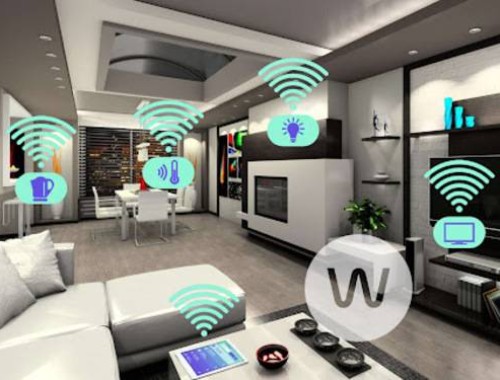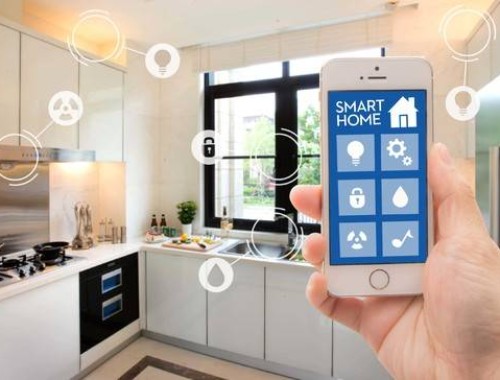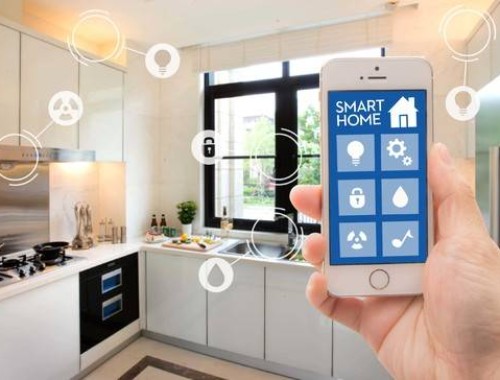The demand for home security is as high as 92%, with huge growth potential
Source:Forward Industry Research Institute
Smart security equipment has become the primary consideration for intelligent demand products in the lives of current smart home users.
Recently, the Forward Industry Research Institute issued a report stating that from the perspective of user demand for smart home products in China, home security is the smart home product with the highest demand for users, with a demand rate as high as 92%.
From the perspective of equipment supply market share, home security is also the equipment category with the largest market share in the current smart home category. It can be seen that smart security equipment has become the first intelligent demand product for the lives of current smart home users.
From the point of view of the frequency of use of explosive smart home products, the use frequency of smart locks is 18.14%, ranking second among the explosive products, only 1.47 percentage points lower than smart home appliances. It shows that the smart lock is a popular product in smart home equipment with better practicality and higher user preference.
From the perspective of the smart home pre-installation market, the current mainstream smart home products in the real estate finishing market include: smart door locks, smart security, smart toilets, smart home systems, smart switches, smart curtains, smart lights, smart clothes racks, etc.
As an entry-level product for smart homes, in 2020, the number of smart door locks and smart security equipment will exceed 2 million sets. Among them, the matching scale of smart door locks reached 2.101 million sets, with a configuration rate of 64.6%; the matching scale of smart security guards reached 2.22 million sets, with a configuration rate of 68.2%. The popularity of smart door locks and smart security equipment in the fine decoration market is significantly higher.
The rapid development of domestic Internet technology, machine vision technology, big data technology, etc., provide a good technical environment for the development of intelligent security equipment.
Taking smart door locks as an example, as an entry-level product for smart homes, driven by new technologies, smart door locks can achieve more and more functions, from basic fingerprints, face unlocking and remote unlocking, to built-in micro-cameras. Identify suspicious and dangerous persons, and then gradually upgrade and optimize the linkage with smart home equipment. Smart door locks are significantly improved compared to traditional door locks in terms of safety and convenience. Driven by technology, smart security products are continuously optimized, and their attractiveness to users is further enhanced.
Intelligent security products continue to achieve breakthroughs on the supply side in terms of form and function, providing a source of growth for user needs.
Since 2014, the status of "consumption" in China' s economic structure has gradually increased and has become an important driving force for national economic growth. The per capita disposable income and consumption expenditure of Chinese residents have gradually increased, and the Engel coefficient has declined as a whole.
Although the epidemic has temporarily affected the scale and structure of residents' consumption expenditure, in the long run, national consumption capacity has been significantly enhanced and the consumption structure has been optimized. In an economic environment where the national consumption power is increasing and the consumption structure is upgrading, smart home security products with higher security guarantees are gradually being accepted by the public.
According to data disclosed by the Ministry of Public Security, from 2010 to 2020, the number of public security cases accepted by China' s public security organs is gradually declining; but in absolute terms, the number of public security cases in 2020 will still exceed 8 million, and there are still many insecure factors in current social security. . Based on the improvement of overall consumption power, the people are also more willing to invest more in the self-protection of personal and property safety to enhance the sense of self-sufficiency and security, which in turn promotes the further growth of the demand for security smart home equipment.
From the perspective of corporate layout, in addition to traditional security giants represented by Hikvision and Dahua Co., Ltd. actively promoting the intelligent transformation of security products, Internet companies, home appliance companies and 3C companies have also deployed smart security markets.
Promoted by the development of national smart cities and informatization, digitization and artificial intelligence, the production of traditional security companies has gradually shifted to the field of smart security. Judging from the current rankings of the top ten brands in the three segments of smart security equipment, Haier smart locks, Honeywell security and Hikvision occupy the top positions of the brands in the smart door locks, smart anti-theft and smart surveillance fields respectively. In the two fields of intelligent anti-theft alarm and intelligent video surveillance, Hikvision, Honeywell Security, Bosch Security and Dahua are all on the list.
From the perspective of the types of competing companies, traditional security brands such as Hikvision, Dahua and Bosch Security have shown strong competitiveness in the smart security equipment market.
At present, the market penetration rate of smart door locks in China is still very low compared to South Korea, Japan, and European and American countries. According to AVC data, in 2019, the country with the highest penetration rate of the global smart door lock market is South Korea, with a penetration rate of 75%, which is more than 10 times that of China; Japan ranks with a penetration rate of 40% Second: The penetration rate of the smart door lock market in European and American countries has reached 15%; while the penetration rate of the smart door lock market in China is only 7%. It can be seen that there is still huge room for growth in China' s smart door lock market.
In addition, according to AVC real estate big data forecasts, the scale of demand for smart home systems, smart toilets, smart drying racks, smart switches, and smart door locks in the Chinese real estate residential finishing market will increase. It is estimated that the matching amount of smart door locks will increase to more than 450 sets in 2022, and the configuration rate will reach 93.5%. It can be seen that smart door locks will be the smart home equipment with the most rapid growth in supporting demand in the real estate and residential decoration market in the next few years.
At the same time, home security monitoring equipment is also a device with great demand potential in the field of security smart homes. IDC predicts that the growth rate of home security monitoring equipment shipments in 2021 will be more than 60%, and the compound growth rate of shipments in 2020-2025 will also reach more than 35%.
On the whole, with the continuous improvement of people' s safety awareness, the market prospects in the field of intelligent security are broad.
The source has been identified in this article. All copyrights belong to the original anthor. In case of infringement, please contact us.
-

Midea released the first smart home operating system based on HarmonyOS
-

The second quarter analysis of the European smart home market is released, Amazon tops the list
-

Huisen Furniture joins hands with Xiaomi, entering the Smart Field of the Whole House
-

After two months of smart home orders, post-90s become the fastest-growing consumer group

 沪公网安备31010402003309号
沪公网安备31010402003309号



